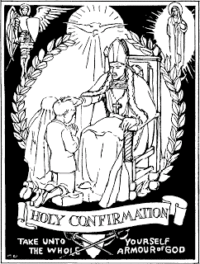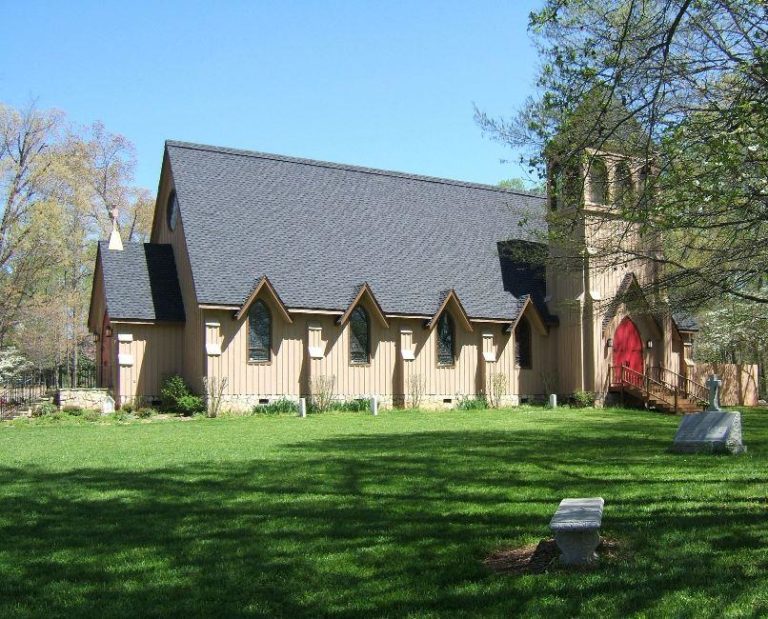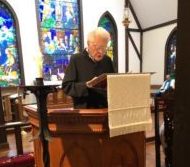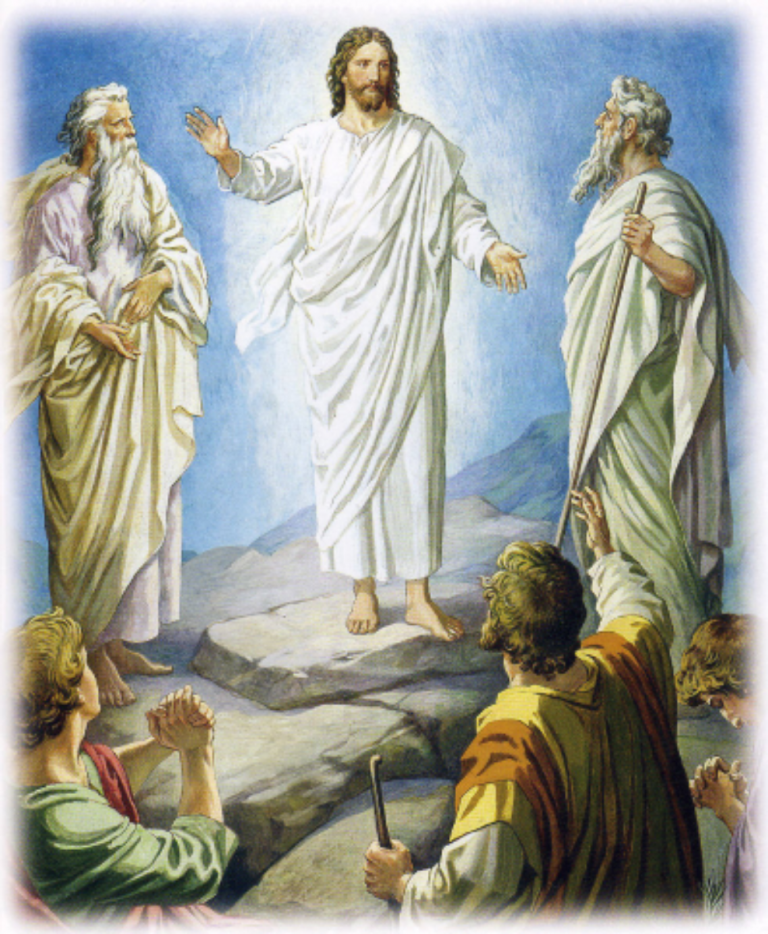ON A REASONABLE, HOLY, AND LIVING SACRIFICE

ON A REASONABLE, HOLY, AND LIVING SACRIFICE
The Rev’d. Stephan W. Heimann
St. Paul writes to the Corinthians, “Christ our Passover is SACRIFICED for us; therefore let us keep the feast…” (1Cor.5:7). We respond in our Liturgy with a prayer that God would “mercifully accept this our SACRIFICE of praise and thanksgiving (cf.Heb.13:15).
The Apostle encourages the Romans to “present your bodies as a living SACRIFICE, holy and acceptable unto God, which is your reasonable service” (12:1). We thus respond by presenting “ourselves, our souls and bodies, to be a reasonable, holy, and living SACRIFECE…”
Therefore, it is very necessary that we understand the meaning of SACRIFICE, as it pertains to our worship and to our lives. This term has been corrupted both by historical controversies and secular usage, to such a point that some Christians object to the Holy Eucharist being thought of as a SACRIFICE, and other Christians have the wrong idea of what SACRIFICE means in its sacramental context: in Liturgy and Life!
Leonel Mitchell’s The Meaning of Liturgy and Royden K. Yerke’s Sacrifice both provide some very helpful insights into the historical religious meaning of SACRIFICE. They tell us that:
1.SACRIFICE in the ancient world has no secular meaning at all. It had no other meaning except to celebrate a sacred rite;
SACRIFICES were occasions of joy and festivity.
Because they were occasions of joy and festivity, SACRIFICES were always as large and elaborate as possible;
SACRIFICES were offered by worshippers to God. The emphasis was on giving, not the giving up.
SACRIFICES were frequently offered as expressions of thanksgiving (lit. Eucharist) for a boon already received;
The death of the animal, while a necessary fact preliminary to the SACRIFICE, was never a factor in the SACRIFICE. (This is the most important part, according to Mitchell)
This last point leads to the insistence, by Mitchell and Fr. Louis Bouyer (another well-known writer on Liturgy) that we will never understand the New Testament meaning of SACRIFICE if we focus on the DEATH of Christ, and/or the SECULAR association of death with sacrifice, because both have led unnecessarily to some of the great controversies over Eucharistic Sacrifice.
The Studies of Mitchell, Yerke, and Bouyer help us to better understand both our Lord’s SACRIFICE for the sins and for the life of the world, and also the SACRIFICIAL nature of the Christian sacramental life.
It would appear that a more accurate the phrasing in our Prayer of Consecration (BCP p.80) ought to be, concerning the death of Christ, that He PREPARED THERE (not “made there”), by the one oblation of Himself once offered, a full, perfect, and sufficient sacrifice, oblation, and satisfaction for the sins of the whole world. The institution and Gospel command to repeat the taking, blessing, breaking, and giving of bread is the celebration of His PREPARATION AND OFFERING OF THE SACRIFICE OF HIMSELF.
THE SACRIFICE OF OUR LORD JESUS CHRIST TAKES PLACE ETERNALLY IN HEAVEN! It is there, according to the teaching found in the book of Hebrews, that He offers His spotless life (tempted in all ways as we are, yet without sin), His blessed Passion and precious Death, His mighty Resurrection and glorious Ascension” to the Father so that we might receive the “innumerable benefits procured for us by the same.”
What we do at the Holy Eucharist is two-fold. We “render unto God most hearty thanks (Eucharist = Thanksgiving) for the innumerable benefits procured unto us…” and we offer ourselves in unity with the Savior to continue His earthly & heavenly mission in our lives.
THE HOLY COMMUNION which we receive WITHIN OUR CELEBRATION OF THE HOLY EUCHARIST is the ENERGY of our Lord Jesus Christ to unite us with Him and with the faithful Church in celebration of His Sacrifice, and the doing of “all such good works as He has prepared for us to walk in.”
The pages of the Bible tell us what we are to OFFER TO GOD AS OUR SACRIFICE when we gather to worship and receive Him. These golden words challenge us to SPEND THE WEEK PREPARING THE SACRIFICE WE OFFER AT THE HOLY EUCHARIST CELEBRATION.
The Psalms tell us that we are to offer the SACRIFICE of righteousness (4:5), of joy (27:6), of a convicted conscience and contrite heart (51:16). St. Paul tells us to offer the SACRIFICE of love that imitates the love of Christ (Eph.5:2), and of generosity (Phil.4:18). St. Peter challenges us to offer our unswerving faith (1Pet.2:5,6). The author of the Hebrews tells us to offer a SACRIFICE of praise and thanksgiving, and of good works and charity (Heb.13:15,16).
Our PRAYER FOR THE WHOLE STATE OF CHRIST’S CHURCH (BCP pp.74-75) is a prayer OFFERING SACRIFICE to God. The alms, oblations, and prayers offered to God in connection with the OFFERTORY SERVICE are a result of our PREPARATION DURING THE WEEK WHICH PRECEDED OUR GATHERING FOR WORSHIP. For us to make such an offering means that the WHOLE WEEK FOLLOWING our celebration of the Holy Eucharist, and preceding our next celebration, MUST BE SPENT IN LIVING IN REFLECTION OF THE WORSHIP WE HAVE OFFERED, AND IN PREPARATION FOR OUR NEXT EUCHARISTIC CELEBRATION.
If we are clergy, if we bear the authority of government, we have special ways to live our lives and prepare for the Eucharist. The majority of the prayer of preparation, however, is devoted to what must be offered by those who confess God’s Holy name, and by those faithful people gathered to celebrate the Holy Eucharist. THAT’S US, YOU AND ME! We further need to bring to the Holy Eucharist our prayers and efforts to aid those “who are in trouble, sorrow, need, sickness, or any other adversity.” The examples and intercessions of the faithful departed aid in our preparation for SACRIFICE, as do our reflections on their lives and prayers for their growth.
THE INVITATION TO HOLY COMMUNION needs to be read over in PREPARATION for SACRIFICE. Its primary intention is to convict our consciences, result in our confession of sin, and promise us comfort, strength, and purpose in the Blessed Sacrament.
United in this OFFERING AND SACRIFICE of Praise and Thanksgiving, we receive from God THE ONLY MEANS by which we can fulfill what we promise to do and be at the EUCHARISTIC SACRIFICE: HIS OWN BODY AND BLOOD TO THE WORLD.
The UNITING of wheat grains to make the bread of the Eucharist, and the UNITING of grapes to make the wine of Eucharist symbolizes COMMUNION & COMMUNITY. United to our Lord Jesus Christ in COMMON UNION with His will and purpose, and united with each other in COMMON UNITY of seeking righteousness and proclamation of the Gospel, we are able to offer our lives as a united reasonable, holy, and living SACRIFICE until His coming again. At that time, we will be united to the ETERNAL EUCHARISTIC CELEBRATION of the Love which has brought us together in this life, to preserve our bodies and souls unto everlasting life.






